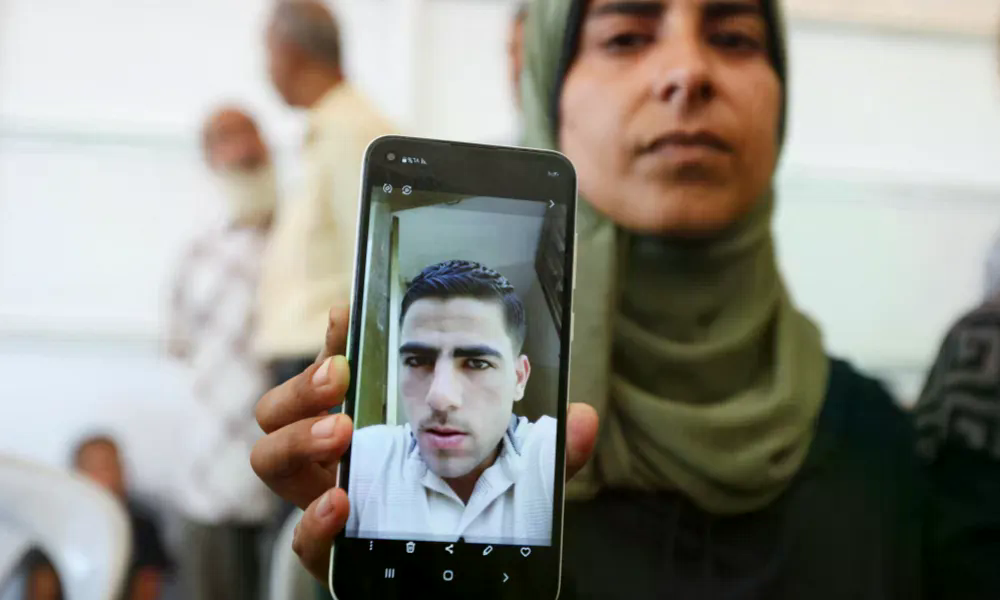
Most of the bodies of over 100 Palestinians who died in Israeli custody remain unidentified. These individuals were returned to Gaza with numbers instead of names, leaving families of the missing to search through images of the deceased in a desperate attempt to identify their loved ones.
Evidence from the remains indicates that many of these individuals suffered severe physical abuse prior to their deaths. Marks on the bodies, along with blindfolds and handcuffs still attached to some, suggest they may have been tortured or even executed. This has been corroborated by Palestinian detainees released as part of the recent Gaza ceasefire agreement, which also facilitated the return of Israeli captives.
For years, allegations of torture against Palestinian detainees in Israeli prisons have persisted, with reports intensifying since the conflict in Gaza escalated. Some Israeli officials have even publicly defended such practices.
According to the United Nations, at least 75 Palestinian detainees have died in Israeli custody since October 7, 2023. A particularly disturbing case involved the gang rape of a Palestinian prisoner by guards at the Sde Teiman detention facility last year. Verified video footage showed guards using their shields to obscure the camera before carrying out the assault, leaving the victim unable to walk, as reported by Israeli media.
The condition of the bodies returned to Gaza is deeply troubling. Forensic teams examining them have noted signs of physical abuse, according to medical sources cited by Al Jazeera. Some bodies exhibited missing limbs, teeth, or burn marks, as reported by the Palestinian Health Ministry in Gaza.
Dr. Munir al-Bursh, director-general of the Health Ministry, described the return of these bodies as a “war crime,” stating that the deceased had been restrained, tortured, and burned. He called for an urgent international investigation and accountability for those responsible.
Images of the bodies support these claims, with experts noting visible signs of abuse. Sameh Hamad, part of a commission receiving the bodies at Nasser Hospital in Gaza, reported that one body had a rope around its neck. Raed Mohammad Amer of the Palestinian Prisoners’ Society stated that his organization found evidence of Israel executing dozens of Palestinians, though many cases remain unresolved.
Naji Abbas, director of the prisoners and detainees department for Physicians for Human Rights Israel, expressed no surprise at the condition of the bodies, citing numerous documented cases of torture and death in Israeli prisons. He noted that one autopsy revealed signs of violence eight months after the individual’s death.
Al Jazeera contacted the International Committee of the Red Cross (ICRC), which oversees the transfer of detainees, but the organization did not comment on the condition of the bodies. Instead, it emphasized its focus on the “dignified transfer of remains of the deceased.”
The Israeli military and prison service did not respond to requests for comment.
This week, nearly 2,000 Palestinians from Gaza and the occupied West Bank were released as part of the ceasefire deal. Many had been detained in large-scale operations, leaving families uncertain about the fate of their loved ones. Upon release, many detainees were found in critical condition, with some requiring immediate medical attention.
Mahmoud Abu Foul, a released detainee, said he lost his eyesight due to Israeli torture. Another, Kamal Abu Shanab, reported a significant weight loss, while Salem Eid described chronic pain that forced him to sleep in a seated position.
Reports of abuse in Israeli prisons have long existed. B’Tselem, an Israeli human rights group, described the prison system as a “network of torture camps” in a report last August. The report detailed frequent acts of severe violence, sexual assault, humiliation, and denial of medical care.
Psychological abuse has also been reported. One detainee was told his family had been killed, only to later learn they were alive. Another had prepared a bracelet for his daughter, only to discover she, along with his wife and other children, had been killed.
There are currently approximately 9,000 Palestinian detainees in Israeli jails. Among them is Marwan Barghouti, a prominent Palestinian leader serving multiple life sentences. He has consistently rejected the jurisdiction of the Israeli court and advocates for nonviolent resistance and a two-state solution.
Barghouti’s son, Arab, claimed that his father has faced exceptionally harsh treatment, including a beating that left him unconscious. Israeli authorities have denied mistreatment of detainees, but have not provided evidence to support their claims.
Far-right National Security Minister Itamar Ben-Gvir, who oversees the prison system, has been seen in a video threatening Barghouti. He reportedly showed him an electric chair and warned of his fate. Ben-Gvir has openly supported strict measures against Palestinian prisoners, stating that “summer camps and patience for the terrorists are over.”


